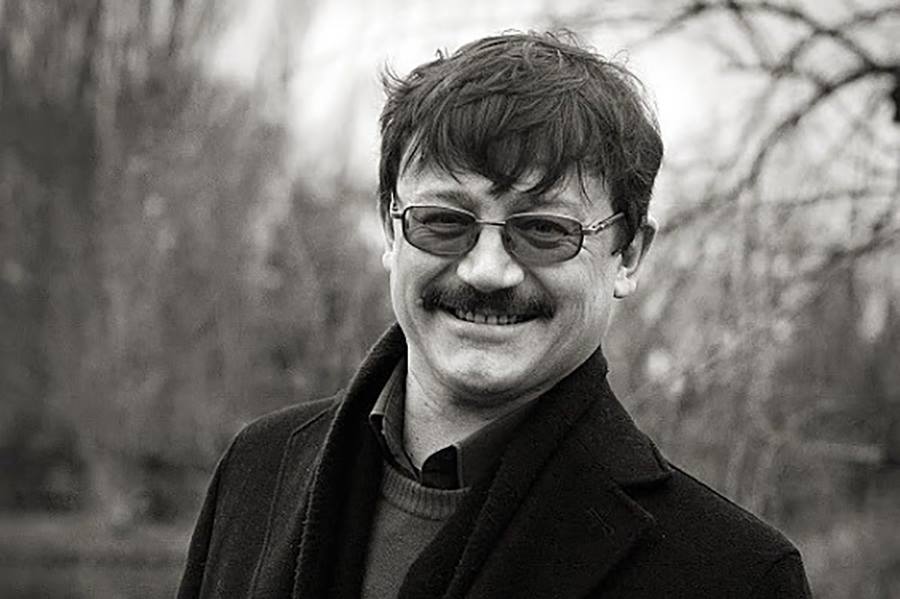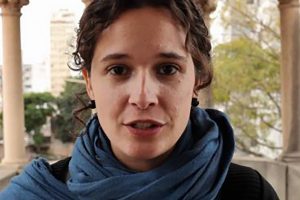Since 1998, Oleg Khomenok has been involved in the development of the network of investigative reporters in former Soviet Union countries via a variety of projects, such as trainings in investigative journalism techniques and strategies and providing support to reporters. Throughout his experience in journalism and media education, Oleg Khomenok has supported projects on investigative reporting and media in the post-Soviet media environment. In addition, he coordinated the YanukovychLeaks.org project from the start together with a team of Ukrainian reporters, rescuing and publishing thousands of financial documents on the former Ukrainian president online.
Today he is telling Iravaban.net about his own experience.
What is your opinion about the recent murder of the Slovak investigative reporter?
I think it is horrible that this is happening in Europe. I guess that the mafia is doing it because they don’t see another way to stop the investigations.Just some months ago another investigative reporter was killed in Malta. I think that European reporters should reunite and finish the investigation to demonstrate that they could kill the reporter but never the story. Their intention is to dissuade reporters from continuing to investigate; we shouldn’t let this happen.
Info about the Slovak reporter: https://www.occrp.org/en/amurderedjournalistslastinvestigation/the-model-the-mafia-and-the-murderers
Info about the Maltese reporter: https://blog.opencorporates.com/2017/10/31/the-investigators-handbook-a-guide-to-using-opencorporates/
Apart from physical threats, what are in your opinion the main challenges journalists facewhen doing investigative reporting in post-Soviet countries?
All reporters should learn the basics of physical security. Apart from that, there is another challenge that is the digital security. Nowadays the profiles and accounts might be hacked and the information that was collected during the research could be stolen or it could also happen that the people who are not interested in revelation might know what the reporter knows, and that is what actually raises the risk of physical security. Reporters should have knowledge and skills to protect themselves in the digital world.
Following this,what is the current situation of investigative journalism like in Ukraine?
In Ukraine, as in other post-soviet countries, there are three main challenges. Firstly, there is a need for more independent media outlets;secondly, there is another need for a more empowered civil society; and finally, there is a need for an independent judicial system. In many cases the degree of impunity is very high and those who commit crimes do not suffer the consequences accordingly.
However, there are advantages nowadays. In Ukraine we have much more data now than in the past decades and investigative reporters have less trouble and spend less time asking for public data. In addition, the existence of journalistic networks is helping a lot in the development of investigations. This is the reality in the post-soviet area and Ukraine is on the same path.
We have several investigative reporting TV-shows that are competing against each other. We also have several agencies that are producing investigating reporting. To some extent, they are sharing the field they are working. For instance, one agency is working mostly with the public procurement, another one is tracking high-ranking corruption cases. Another agency is tracking the issues of misuse and abuse of power in the health care and education systems. In my opinion, that creates kind of a wide picture or wide field for work where everybody can have their own assignment.
How is the cooperation between lawyers and investigative reporters in Ukraine?
I’ve beenstrongly supporting this cooperation for the last fifteen years, promoting it throughout the projects that I was involved in. To my mind, there are several crucial points that are important, as well as several fields where lawyers can cooperate with investigative reporters.
Firstly, it is important that lawyers can help reporters in accessing public information; lawyers can advise journalists and help them to fill in requests for public information and they can help them in case they are denied access to public information by filing complaints to courts or prosecutors. In case of Ukraine, there is also a law that actually suggests that the complaints might also be filed to the Ombudsman. Before the case goes to the court, the Ombudsman can send an order to the government that avoids disclosing informationto the public, so that the information can be provided to the reporters. In Ukraine this is working efficiently because lawyers help a lot in creating proper documents.
The second field of cooperation is related to protecting or defending reporters in case their rights are violated,that is, in case of violence used against reporters or getting threats that prevent their professional work. In such cases lawyers can step in and represent journalists in criminal procedures or in courts when their rights are violated.
The third field is related to the prevention of legal consequences for the reporters and the media outlets after the story is published. This means that the legal vetting or the legal pre-publication screening is very important for investigative reporting.
For better understanding, can you give us an exampleshowing how important the cooperation is in that third field?
During the past four years,I have been managing Slidstvo.info (https://www.slidstvo.info/) that is a weekly TV show investigative reporting project. Throughout the years, this project has produced more than four hundred investigations for TV. During the legal vetting, each piece was screened by the media lawyers before beingbroadcaston TV.
During the whole duration of the project, Slidstvo.info received only eight court complaints, which demonstrates that pre-publication actually reduces risks. Moreover, in most cases when the project went to the court, media lawyers won the court case because they helped reporters to make every statement of their stories very clear and proven with appropriate documents and quotes from the source used for the stories.
Those are the cases when media lawyers can help the reporters. Finally, the fourth field of cooperation is representing journalists in the court in case legal consequences arise. Some people, whose activities were disclosed or revealed in the reports, took the reporters to the defamation court case against the report and the media lawyers were helping them here again.
In your experience of conducting training for investigative reporters, what techniques and strategies did you teach? In your opinion, what qualities doesan investigative reporter need to have to be successful?
They need technical skills such as using the camera and other devices. Secondly, they need to have skills for processing big data; we have a lot of data and efficient work with open data is quite a crucial skill that is highly demanded in investigative reporting. These first two things are easy to reach or to obtain, in my opinion. However, I think that one of the biggest gaps in investigative reporting in Ukraine and other countries in the post-soviet area is the lack of the interviewing techniques,that is,the lack of skillsand experience in talking to people.
Could you elaborate more on that last idea?
The typical investigating reporting piece in Ukraine, Russia, and Moldova is,as follows: At first, reporters are checking the public data, then they find a real estate or luxury car that has not been declared yet by the public official;after that they go to the site to take footage or film the spot with a drone. Later, they attempt to approach the person, after which the person escapes. Sometimes journalists are even bitten by the person and become famous because of the violence and that’s it, end of the story.
However, to my mind, one of the most important issues in investigative reporting is to show and tell about the people affected by misuse or abuse of power. In my opinion, that is what is lacking in investigative reporting in post-soviet countries. I think that it is because reporters are quite accustomed to tracking public data, using more drones or other technologies, but they also need to learn how to talk to people, how to find the protagonist, the people that were affected, as well as how to find the victims and talk to them and show how the misuse of power investigated by them actually affects ordinary people. That would also help the audience to understand why investigative reporting is so important for them and why they should actually watch reportages, as well as what can come out of the story.
Finally, what was the most challenging moment while coordinating the YanukovychLeaks project?
I coordinated the YanukovichLeaks four years ago. On February 22nd, we found nearly 200 folders of documents near the lake of the residence of the former president of Ukraine. The Kiev Reservoir was actually the book-keeping system. The former president fled from Ukraine but first he tried to destroy those documents. We were afraid that the people related to him might come back to get us, and we were also afraid that the documents might be seized by the court. Thus, the first task we had was to rescue those documents and make them public. This was kind of a clear and conscious decision to first rescue the documents and then dry and scan them to do the investigation as we did not have evidence yet. Actually we did not even start the investigation based on these documents before scanning and publishing them. That was very challenging. We managed to rescue 25,000 pages of financial documents and publish them online (https://yanukovychleaks.org).
Interview by José Nicolas Dominguez Mendoza,
EVS Volunteer at the Armenian Lawyers’ Association
Author of the Idea: Astghik Karapetyan









